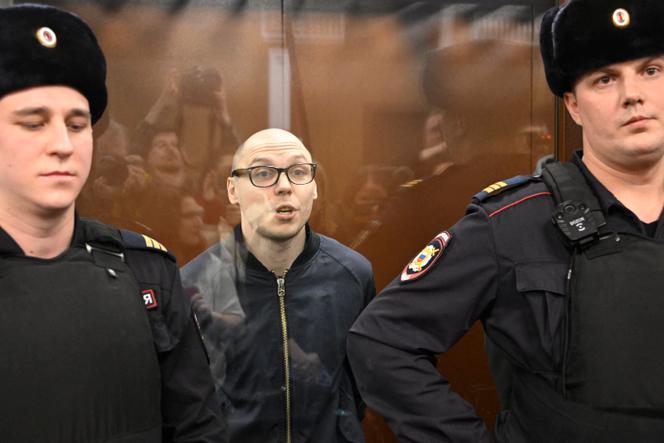


In his prison cell, Artyom Kamardin lost his inspiration but not the strength to write. The artist and activist, who opposes Vladimir Putin's Kremlin and its "special military operation" in Ukraine, sent a letter to Le Monde: a long text signed "an oppressed poet." On December 28, 2023, Kamardin was sentenced to seven years in prison for "calling for actions threatening national security" after publicly declaiming his anti-Kremlin and anti-war verses in Moscow.
Almost a year later, the courts just transferred him from a pre-trial detention center in Moscow to Pokrov penal colony no. 2, some 100 kilometers south of the capital. A few days earlier, 34-year-old Kamardin wrote: "Poetry is not a crime. And love is stronger than repression. A poet in Russia is more than a poet."
It was in the name of principle that, on September 25, 2022, just after the Kremlin's decree on military mobilization for the Ukrainian front, Kamardin decided to put pen to paper. At the foot of the statue of the poet Vladimir Mayakovsky (1893-1930), on a square in the heart of Moscow and a venue for political-poetic encounters since the Soviet decades, he launched his raging verses: "Kill me, militiaman." It was a rebellious poem against law enforcement and, beyond that, against the "siloviki," the men of the security services who have seized power for nearly a quarter-century of Vladimir Putin's reign. Kamardin denounced their "punitive arm," accusing them of "having already tasted blood," evoking the "mass graves" in Ukraine. And he took aim at the head of the Kremlin: "Your president will be very pleased with you. Tear me to shreds!"
Twenty-four hours – and a few death threats on the internet – later, the masked men of an elite troop saw through the door of the poet's apartment with a grinder. He was brutally arrested. Kamardin was forced to make a filmed apology, a practice that has become routine since the war in Chechnya in the mid-1990s. On the premises of the investigating committee, he was allegedly assaulted with a dumbbell.
"I was born in free Russia. This country no longer exists, destroyed and devoured by a monster that calls itself Russia," Kamardin wrote from his damp 8-square-meter cell in Moscow, shared with two others convicted of "extremism." In it, he explained the essence of his poetry: "It was in a free and democratic Russia that I formed as a person. In retrospect, the common thread running through my art has been the reflection on the process of transforming my homeland into a fascist dictatorship, on the realization of the impossibility of stopping the process." He proclaimed his love of freedoms, "as natural and necessary as breathing, as embracing a loved one..." and he concluded: "My art revolves around poetry and actionism."
You have 54.96% of this article left to read. The rest is for subscribers only.
